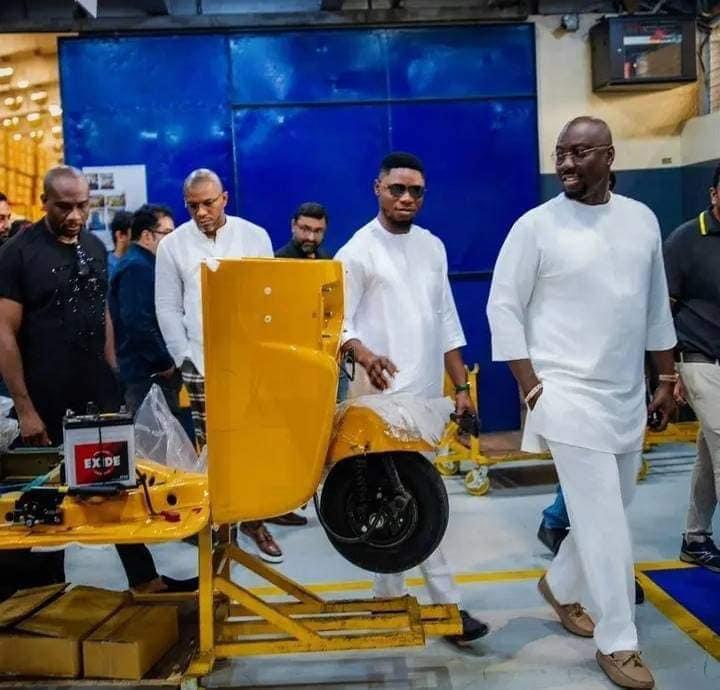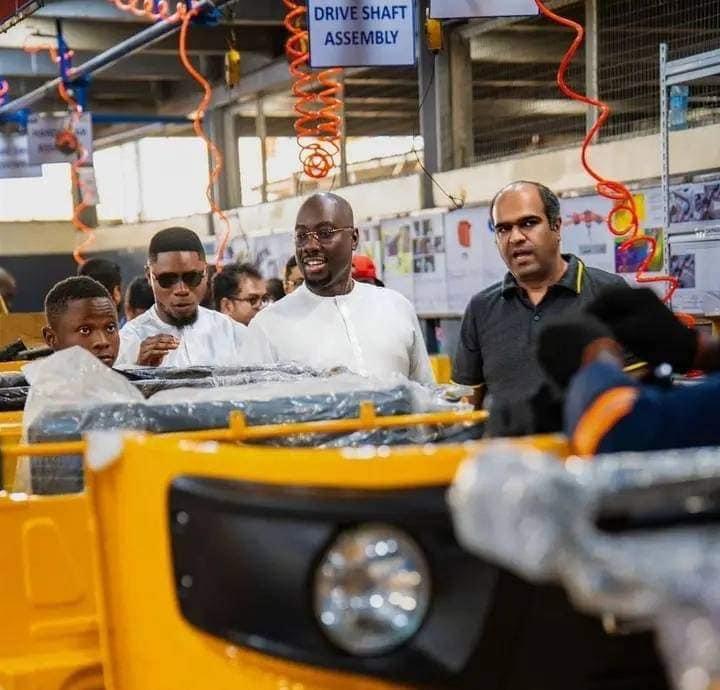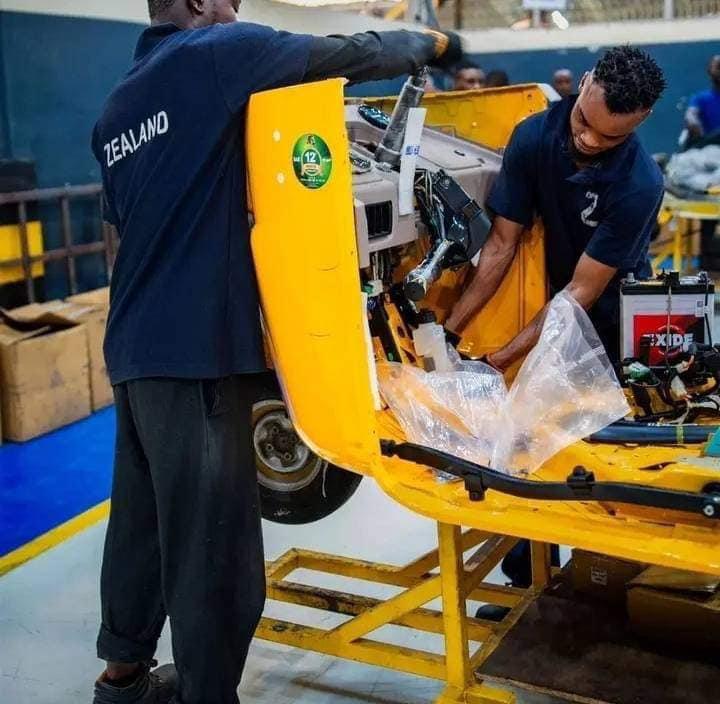 In a significant development for the local economy and transportation infrastructure, a New Zealand-based company, Kiwi Trikes, has commenced operations at a new tricycle manufacturing plant in Ikorodu, Lagos. This initiative, driven by the visionary leadership of Kiwi Trikes’ CEO, Mr. James Wellington, marks a pivotal step in the region’s industrial growth, promising numerous benefits from job creation to enhanced mobility solutions. Here, we explore the various dimensions of this new venture and its potential impact on the community and beyond.
In a significant development for the local economy and transportation infrastructure, a New Zealand-based company, Kiwi Trikes, has commenced operations at a new tricycle manufacturing plant in Ikorodu, Lagos. This initiative, driven by the visionary leadership of Kiwi Trikes’ CEO, Mr. James Wellington, marks a pivotal step in the region’s industrial growth, promising numerous benefits from job creation to enhanced mobility solutions. Here, we explore the various dimensions of this new venture and its potential impact on the community and beyond.
The establishment of the tricycle plant in Ikorodu by Kiwi Trikes is poised to have a substantial economic impact. The plant is expected to generate hundreds of direct jobs, providing employment opportunities for skilled and unskilled workers in the region. This influx of jobs will likely stimulate the local economy, as employees spend their earnings within the community, benefiting local businesses and services.
Moreover, the plant’s operations will create a demand for raw materials and ancillary services, fostering the growth of related industries and supply chains. This multiplier effect can lead to broader economic development, helping to uplift the region economically.

Tricycles, commonly known as “Keke NAPEP” in Nigeria, play a crucial role in the transportation ecosystem, particularly in urban and semi-urban areas. They offer an affordable and flexible mode of transport for many residents, addressing the challenges posed by inadequate public transportation infrastructure.
With Kiwi Trikes’ new plant in Ikorodu, the production of tricycles will become more localized, potentially lowering the costs and making these vehicles more accessible to a broader segment of the population. Improved access to affordable transportation can enhance mobility, reduce travel time, and improve the quality of life for many residents.
The tricycle plant is not just a manufacturing hub but also a center for technological and skill development. By incorporating modern manufacturing techniques and technologies, the plant provides an opportunity for local workers to acquire new skills and expertise. This knowledge transfer can have long-term benefits, as a more skilled workforce can contribute to the region’s overall industrial and technological advancement.
Additionally, partnerships with educational institutions for vocational training and apprenticeships can further enhance the skill set of the local workforce, preparing them for future opportunities in the manufacturing and technology sectors.
The new plant also presents an opportunity to address environmental concerns associated with transportation. By focusing on the production of fuel-efficient and potentially electric tricycles, the plant can contribute to reducing the carbon footprint of the transportation sector. Emphasizing sustainable practices in manufacturing and promoting eco-friendly vehicles can position the plant as a leader in green manufacturing initiatives in the region.

While the establishment of the tricycle plant brings numerous benefits, it also presents challenges that need to be addressed. Ensuring consistent quality control, managing supply chain disruptions, and maintaining competitive pricing are crucial for the plant’s success. Additionally, there may be environmental concerns related to manufacturing processes that need to be managed through stringent regulatory compliance and sustainable practices.
Furthermore, the plant must navigate the local regulatory landscape and ensure alignment with government policies and initiatives aimed at promoting industrial growth and environmental sustainability.
The inauguration of the tricycle manufacturing plant in Ikorodu, Lagos, spearheaded by Kiwi Trikes under the leadership of Mr. James Wellington, is a significant milestone in the region’s industrial landscape. It holds promise for economic growth, employment generation, and improved transportation solutions. By fostering technological development and emphasizing sustainability, the plant can serve as a model for future industrial projects in Nigeria and beyond.
As the plant begins its operations, it will be crucial for stakeholders, including the government, local businesses, and the community, to collaborate and ensure that the benefits are maximized and challenges effectively managed. This initiative not only represents a step forward for Ikorodu but also underscores the potential for regional development through strategic industrial investments.
James Wellington is the CEO of Kiwi Trikes, a New Zealand-based company specializing in the design and manufacture of tricycles. With a background in engineering and international business, Mr. Wellington has led several successful industrial projects across the globe. His strategic vision and commitment to sustainable practices have positioned Kiwi Trikes as a leader in innovative transportation solutions. Under his leadership, the company has expanded its operations into new markets, including the recent venture in Lagos, Nigeria, which aims to address transportation challenges and boost local economies through industrial development.
By : Jide Adesina


